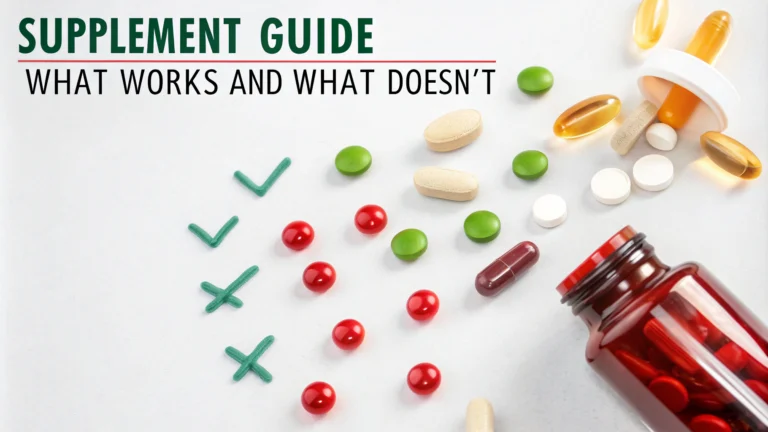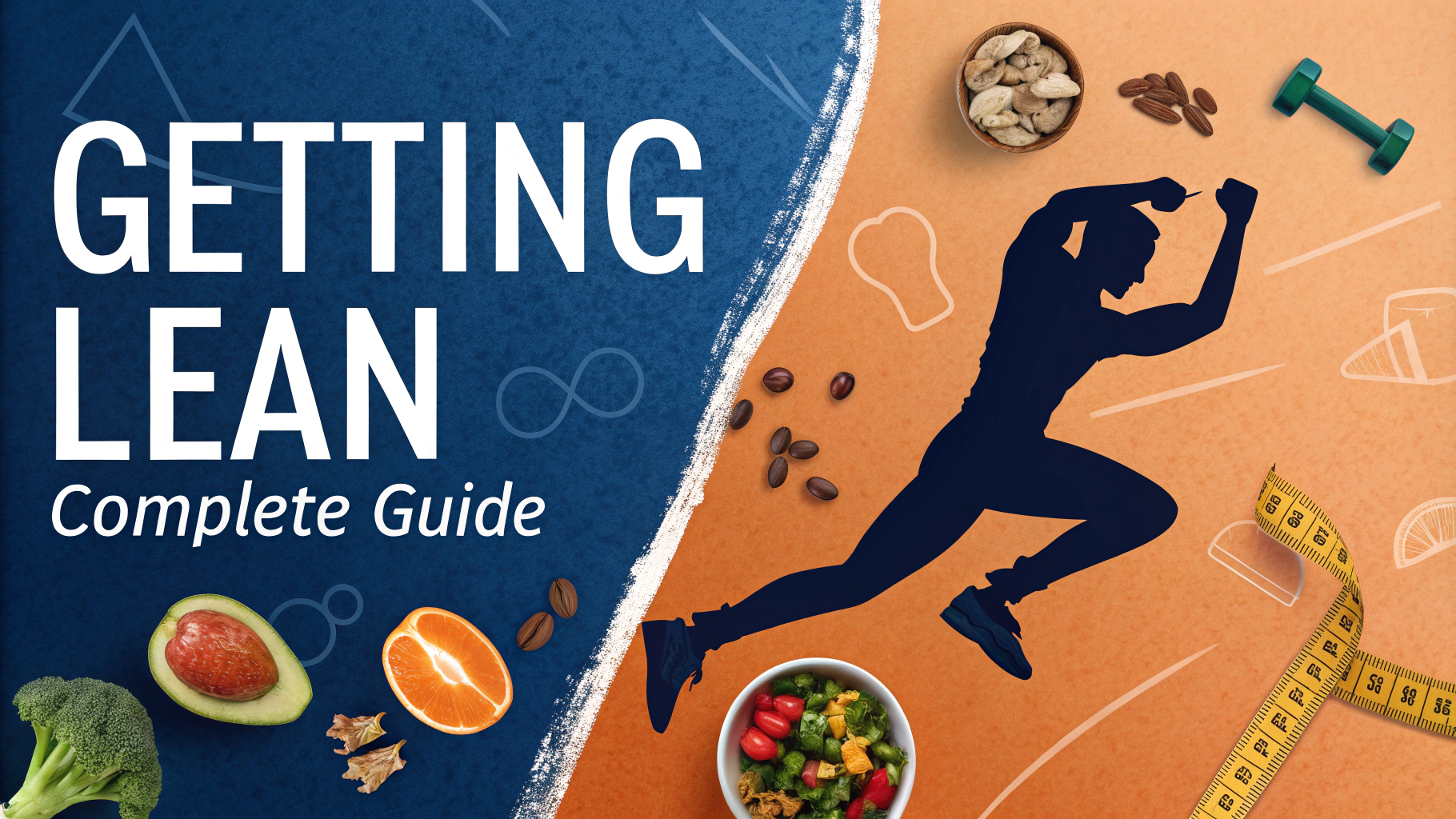Supplements can help fill nutritional gaps, enhance performance, and support overall health – when chosen correctly and used appropriately.
Evidence-Based Supplements That Work
- Creatine Monohydrate: Extensively researched for muscle strength and power gains
- Whey Protein: Supports muscle recovery and growth
- Vitamin D3: Essential for bone health and immune function
- Omega-3 Fish Oil: Reduces inflammation and supports brain health
- Magnesium: Aids sleep quality and muscle function
Supplements with Mixed Evidence
- BCAAs: Beneficial only if protein intake is low
- Pre-workout supplements: Effects vary by ingredient composition
- Beta-alanine: May help with high-intensity exercise
Supplements to Avoid
- Proprietary blends: Unknown quantities of ingredients
- Mass gainers: Often loaded with unnecessary sugars
- Fat burners: Limited evidence for effectiveness
Recommended Daily Doses for Common Supplements
| Supplement | Daily Dose | Best Time to Take |
|---|---|---|
| Creatine | 5g | Any time |
| Whey Protein | 20-30g | Post-workout |
| Vitamin D3 | 2000-4000 IU | With meals |
Safety Guidelines
- Buy from reputable manufacturers with third-party testing
- Check for NSF Certified for Sport or Informed Choice certifications
- Start with single-ingredient supplements
- Monitor your body’s response
For personalized supplement advice, consult a registered dietitian or healthcare provider.
Contact the FDA’s MedWatch Safety Information program at 1-800-FDA-1088 to report adverse supplement reactions.
Quick Tips for Supplement Use
- Store supplements in a cool, dry place
- Check expiration dates regularly
- Take with appropriate meals for better absorption
- Keep a log of supplement intake and effects
Remember: Supplements complement but don’t replace a balanced diet.
Getting Started with Supplements
Before adding supplements to your routine, establish a foundation of proper nutrition and exercise. Start with one supplement at a time to assess individual effects and tolerance.
Building Your Supplement Stack
- Begin with essential nutrients (vitamins, minerals)
- Add performance supplements based on specific goals
- Track progress and adjust accordingly
- Cycle supplements when appropriate
Cost-Effective Supplementation
- Buy in bulk when possible
- Focus on fundamental supplements first
- Compare price per serving, not package price
- Look for verified quality at reasonable prices
Common Supplementation Mistakes
- Taking too many supplements simultaneously
- Ignoring timing and dosage guidelines
- Relying on supplements instead of whole foods
- Not checking for ingredient interactions
Conclusion
Effective supplementation requires careful selection, proper dosing, and consistent monitoring. Focus on evidence-based products that align with your specific health and fitness goals. Remember that supplements work best as part of a comprehensive nutrition and exercise program.
Always prioritize food first, and use supplements strategically to address specific needs or deficiencies. Stay informed about current research and be prepared to adjust your supplement routine as new evidence emerges.
FAQs
- What are the most scientifically proven effective supplements?
Creatine monohydrate, whey protein, vitamin D, omega-3 fatty acids, and caffeine have the strongest scientific evidence supporting their effectiveness for fitness and health benefits. - Do I need to take supplements if I eat a balanced diet?
Most people can get necessary nutrients from a well-balanced diet. However, certain groups may benefit from supplementation, including vegetarians (B12), those with limited sun exposure (vitamin D), and athletes with high protein needs. - When is the best time to take protein supplements?
While protein timing isn’t as crucial as once thought, consuming protein within 2 hours post-workout can help with muscle recovery. Total daily protein intake is more important than precise timing. - Are pre-workout supplements safe?
Common pre-workout ingredients like caffeine, beta-alanine, and citrulline malate are generally safe when taken as directed. However, some pre-workouts may contain unlisted ingredients or excessive stimulants that could be harmful. - Which supplements can help with joint health?
Glucosamine, chondroitin, MSM, and omega-3 fatty acids have shown benefits for joint health. Collagen peptides have also demonstrated positive effects on joint pain and mobility. - How can I tell if a supplement is third-party tested?
Look for certifications from organizations like NSF International, USP, or Informed Choice. These indicate the supplement has been tested for quality, purity, and banned substances. - What supplements are best for building muscle?
Creatine monohydrate and whey protein are the most evidence-backed supplements for muscle growth when combined with proper resistance training and nutrition. - Do fat burner supplements actually work?
Most fat burners have limited scientific evidence supporting their effectiveness. Some ingredients like caffeine may slightly increase metabolism, but no supplement can replace proper diet and exercise. - Are natural supplements always safer than synthetic ones?
Natural doesn’t always mean safer. Both natural and synthetic supplements can have side effects and interactions. The source matters less than the quality, purity, and proper dosage. - What supplements can help with recovery after exercise?
Protein supplements, BCAAs, tart cherry juice, and magnesium have shown benefits for exercise recovery. Adequate sleep and nutrition remain the most important recovery factors.








